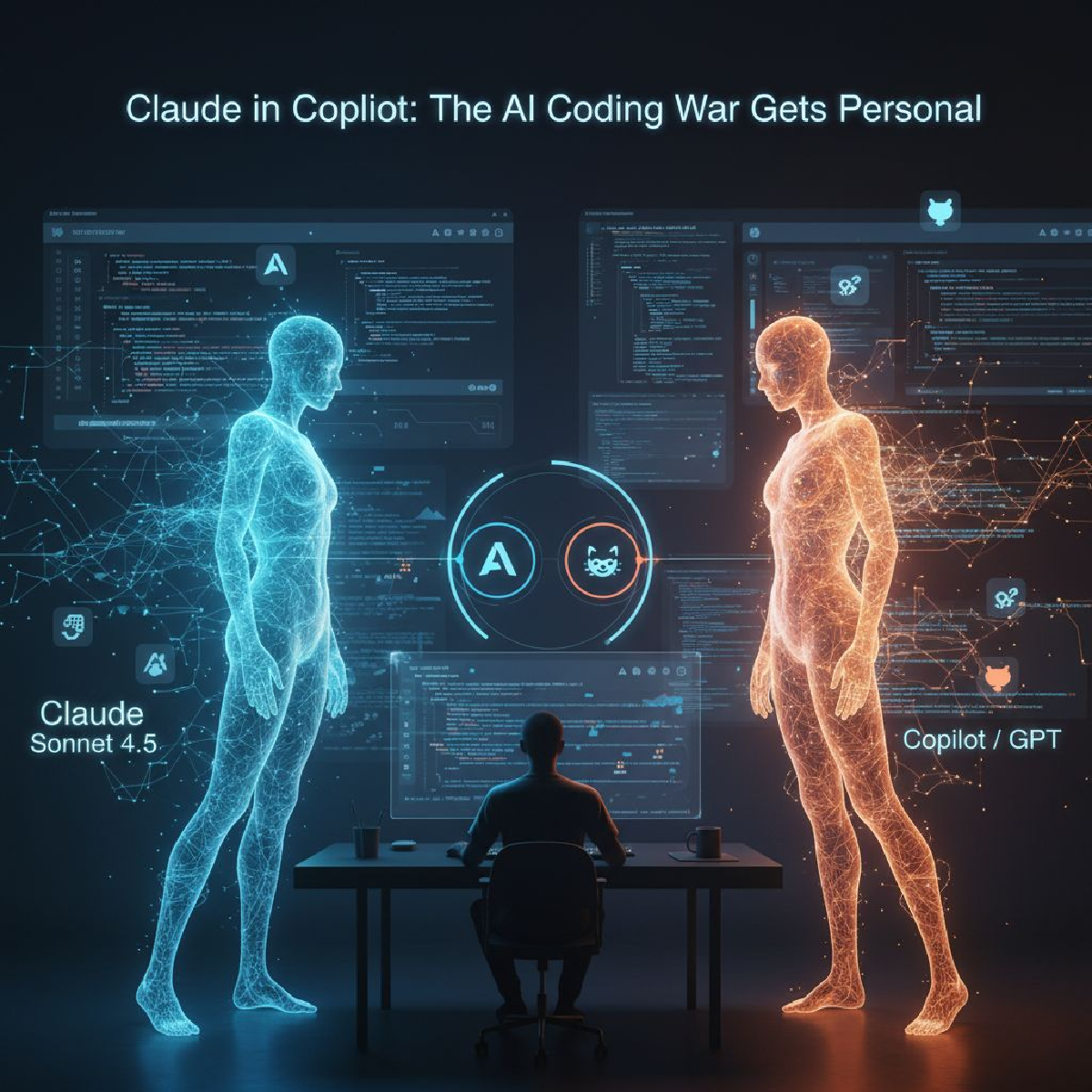GitHub just made Claude Sonnet 4.5 available across Copilot for all subscription tiers—Enterprise, Business, Pro, and Pro+. Developers select Claude via the model picker in VS Code, Visual Studio, JetBrains, Xcode, Eclipse, and github.com.
Claude brings stronger reasoning capabilities, particularly useful when refactoring legacy code, designing system architecture, or generating comprehensive API documentation. The integration offers model choice based on task rather than locking developers into a single AI.
But the move signals something bigger: AI coding tools aren’t converging. They’re fragmenting into specialized capabilities. The “best” assistant isn’t one company’s model—it’s how well you select models for different coding tasks.
This creates cognitive overhead. Which model for refactoring? Which for documentation? Should you switch mid-session? These weren’t questions developers faced six months ago.
Microsoft owns GitHub. Microsoft invested $13 billion in OpenAI. Yet GitHub is making competing models first-class citizens. That signals either genuine platform openness or hedging against single-provider dependency—a pattern emerging across AI coding tools.
Model choice feels like freedom. But it introduces complexity. Developers must now decide which AI fits which task, switching contexts and learning multiple models’ strengths and limitations.
Platform questions emerge too. GitHub curates which models appear and controls integration terms. Notably, GitHub’s coding agent feature now uses Claude Sonnet 4.5 by default for all users, independent of model picker settings. Platform choices shape which AI developers use, even when offering selection.
Better tools, more decisions.


